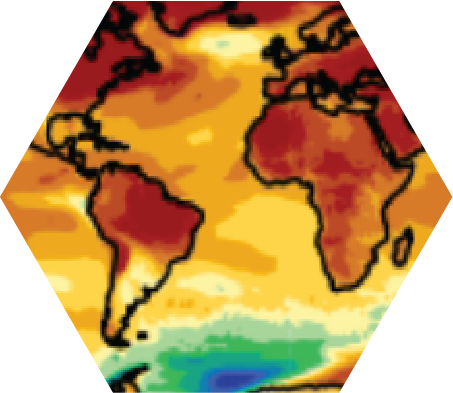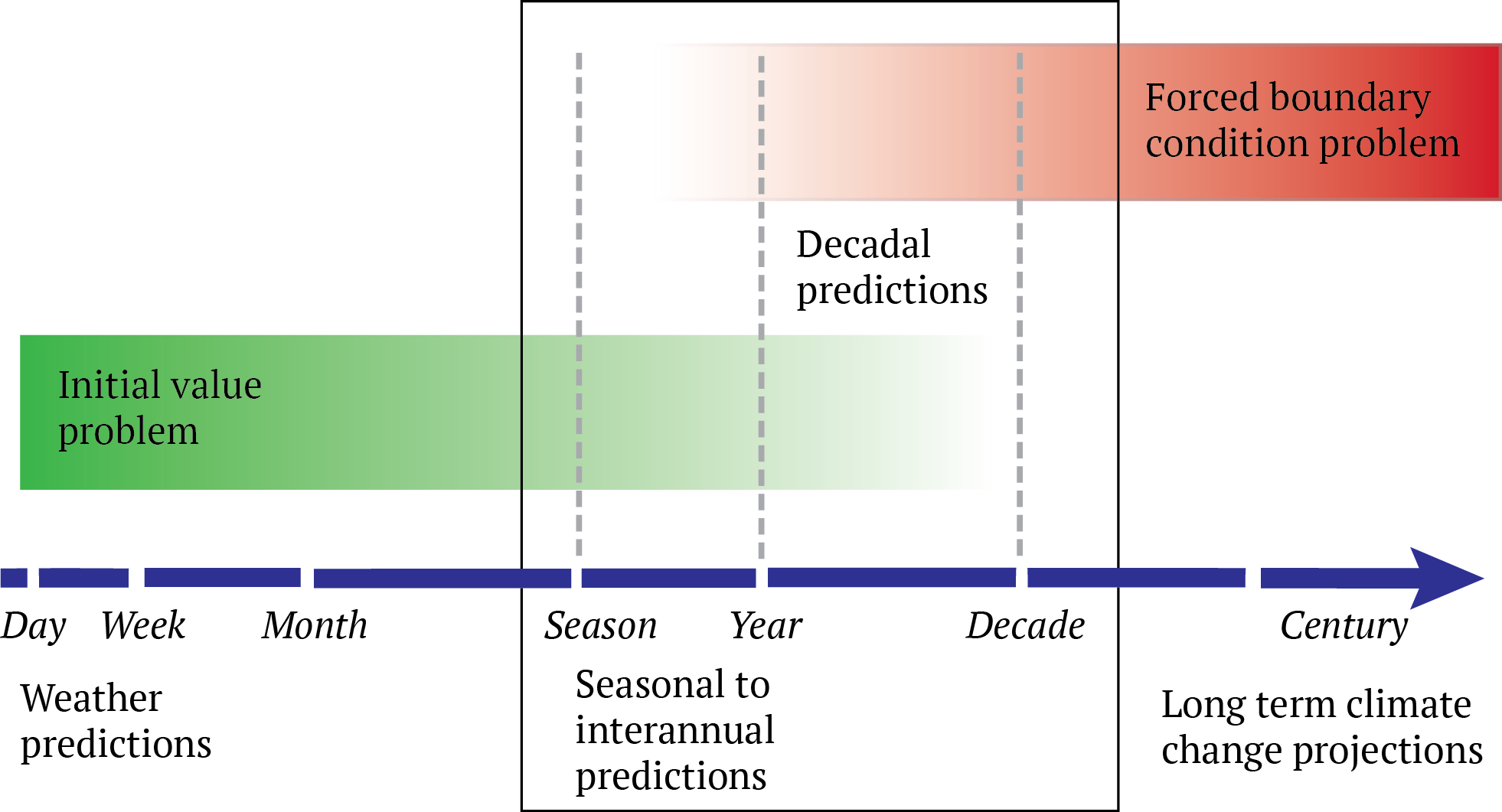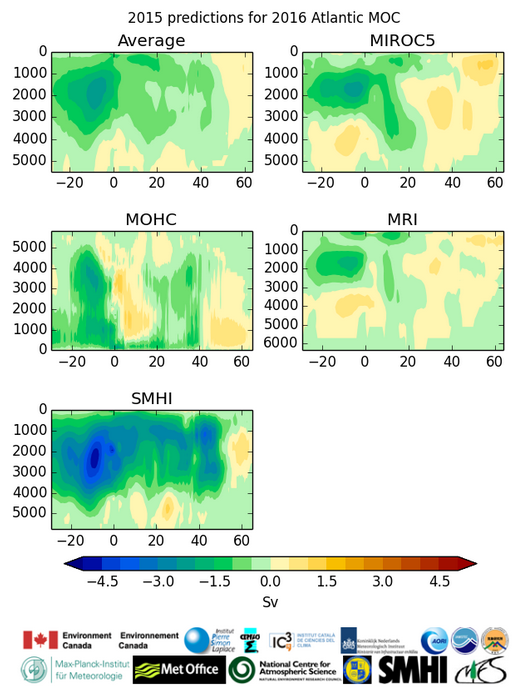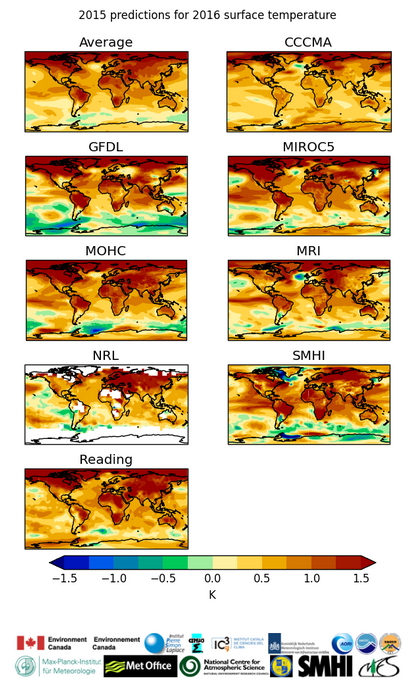
Recent Interview with Adam Scaife
Background
The evolution of climate in the near term, out to a decade or two ahead, is the combination of natural climate variability and human-forced climate change (see Figure 1 below). Changes in natural variability are large enough from one decade to the next to temporarily exacerbate or counter underlying anthropogenic trends.

To take these different underlying drivers into account, researchers need to combine practices for climate projections with those for initialized climate predictions (see Figure 1 above). Here, climate projections out to a century ahead provide the mean, long-term, globally-averaged path of the anthropogenically-forced climate within a wide envelope of uncertainty that the internal variability might fall within. Initialized climate predictions on the other hand start up climate models with data describing the current climate system, in order to enable multi-year to decadal climate predictions and regionally-specific information. Such information is urgently needed by a broad range of communities and decision makers who are engaged in near-term planning activities (e.g. in agriculture, urban planning, health, etc.).
Objectives
The Grand Challenge on Near-Term Climate Prediction will pursue the following objectives:
(1) To improve the quality of initialized decadal climate information and prediction;
(2) To collect, collate, and synthesize prediction output and tailor information toward services that address stakeholder needs;
(3) To develop processes to assess and communicate the degree of confidence and uncertainty in the predictions.
These are expanded on under Research Objectives. Read the full concept note for more information on the scientific and organizational aspects of these objectives.
Synergy and collaboration
The Grand Challenge on Near-Term Climate Prediction fills an important gap in the provision of seamless climate information that is bookended by seasonal-to-interannual climate predictions on the one hand, and multi-decadal and longer-term climate change projections on the other. The GC will be an important contribution to the provision of a seamless climate service, as recommended by the Global Framework for Climate Services.


For the exploration of operational services, the Grand Challenge will work closely with existing activities, such as seasonal forecasts provided under WMO as well as experimental decadal outlooks (e.g. provided through the UK Met Office's informal multi-model decadal forecast exchange, see Figure 2 above).
The Grand Challenge will furthermore maintain effective links with a wide range of other relevant Projects and Grand Challenges within and beyond the WCRP community.

